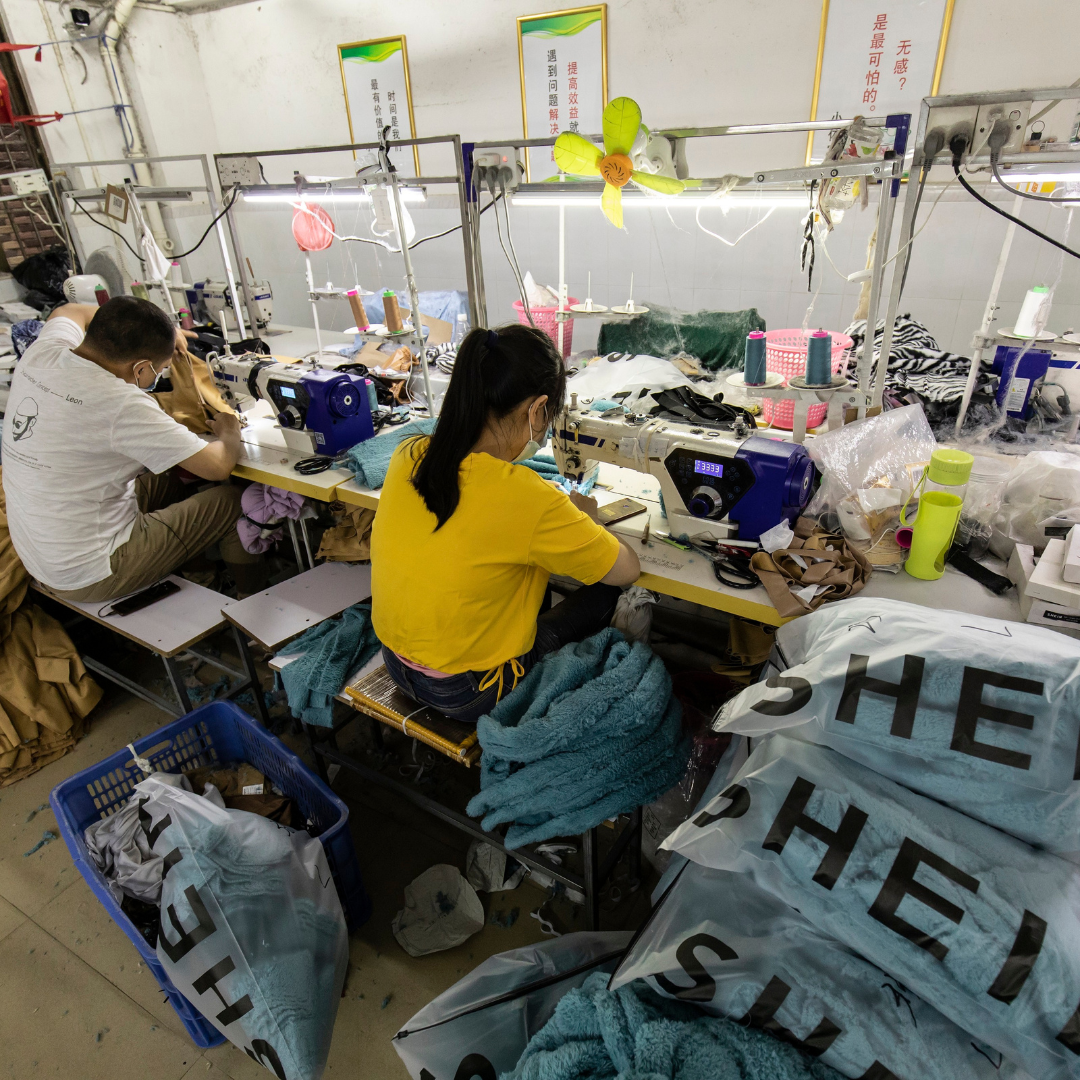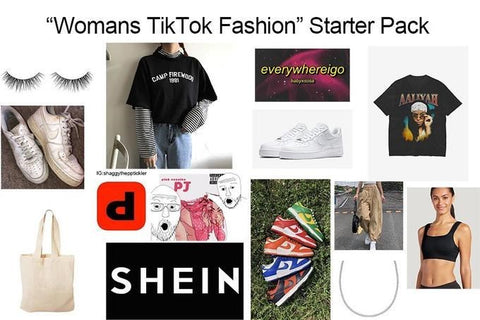
THE NASTY TRUTH : SHEIN
Shein is known for it's tacky online game-ified experience to buy fast fashion and consumer goods at super low prices not taking an consideration to people or the planet. If you are scrolling through TikTok it's almost hard to not see hundreds of hauls of goods that are bought at a steal from Shein.
Shein targets its annual revenue to reach US$58.5 billion in 2025, which means doubling its 2022 revenue of US$22.7 billion ( Source Tech Asia)

That's scary stuff. Especially considering the statistics that currently 92 million tonnes of fashion end up in landfill annually. If companies like Shein double their revenue then these numbers are likely to double also. Let's talk about the not-so-trendy side of fast fashion brand Shein.
Shein seems like the perfect place to find those affordable and trendy pieces. But have you ever stopped to think about where those clothes actually come from and at what cost?
The truth is, Shein has a pretty nasty track record when it comes to ethical and sustainable practices. The company has been accused of exploiting workers, producing clothing in unsafe and unhygienic factories, and promoting a culture of disposable fashion that contributes to the growing issue of textile waste.
In a report conducted by BOF, they follow Public Eye, a swiss watchdog company in 2021 as they released a detailed report that accuses the fast fashion giant of violating Chinese labour laws.
"In Guangzhou, the city where Shein is headquartered and where many of its suppliers are located, researchers were able to track down 17 Shein partners. They found some manufacturers were informal factories set up in residential buildings. Some also had barred windows and no emergency exits, according to Public Eye; conditions that violate Chinese labour laws. "

In 2020, Shein came under fire for selling a necklace that resembled a swastika. The brand apologized and pulled the product from its website, but it raised questions about the company's commitment to diversity and inclusivity.
But that's not all. Shein has also been criticized for copying designs from smaller independent designers without permission, essentially stealing their work and profiting from it. This is not only unethical but also illegal.

And let's talk about the environmental impact of fast fashion. Shein produces clothing at a rapid pace, encouraging consumers to constantly buy new clothes and discard the old. This leads to a massive amount of textile waste that ends up in landfills and harms the environment.
So what can we, as conscious consumers, do about this? First and foremost, we can choose to support brands that prioritize ethical and sustainable practices. There are plenty of small businesses and independent designers that create beautiful and unique clothing while prioritizing fair labor practices and sustainable production methods.
We can also choose to buy less and invest in high-quality pieces that will last for years, rather than constantly buying cheap and disposable clothing. And when we do buy from fast fashion brands like Shein, we can hold them accountable for their actions and demand transparency and ethical practices.
As the future generation, we have the power to make a difference with our purchasing decisions. Let's use that power to support brands that align with our values and work towards a more sustainable and ethical fashion industry.